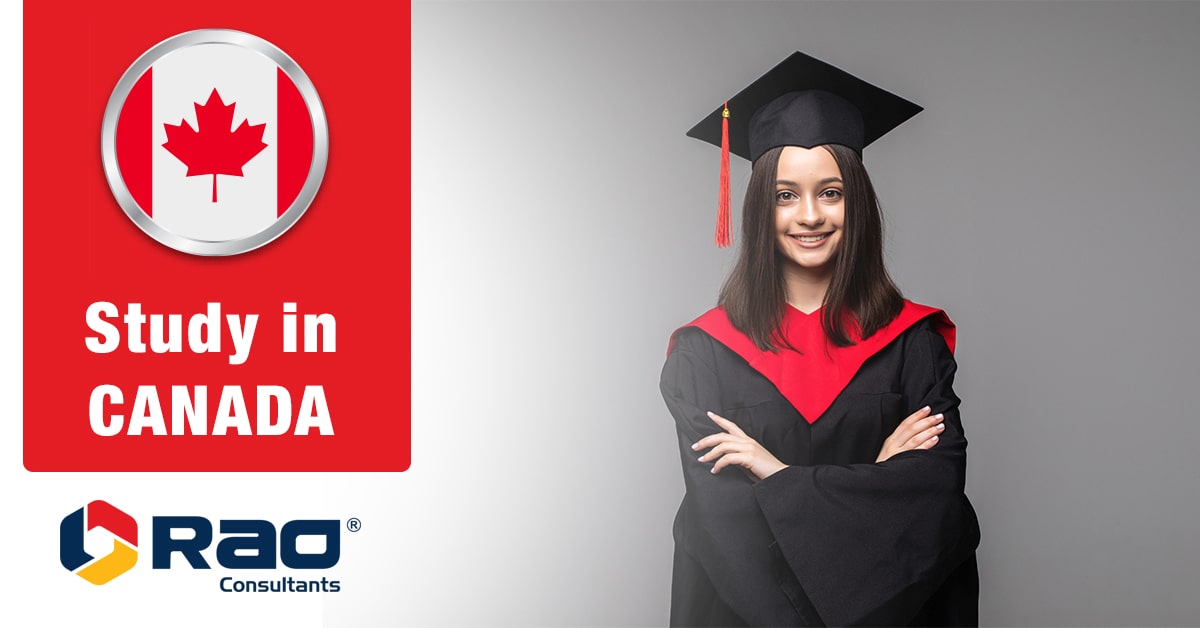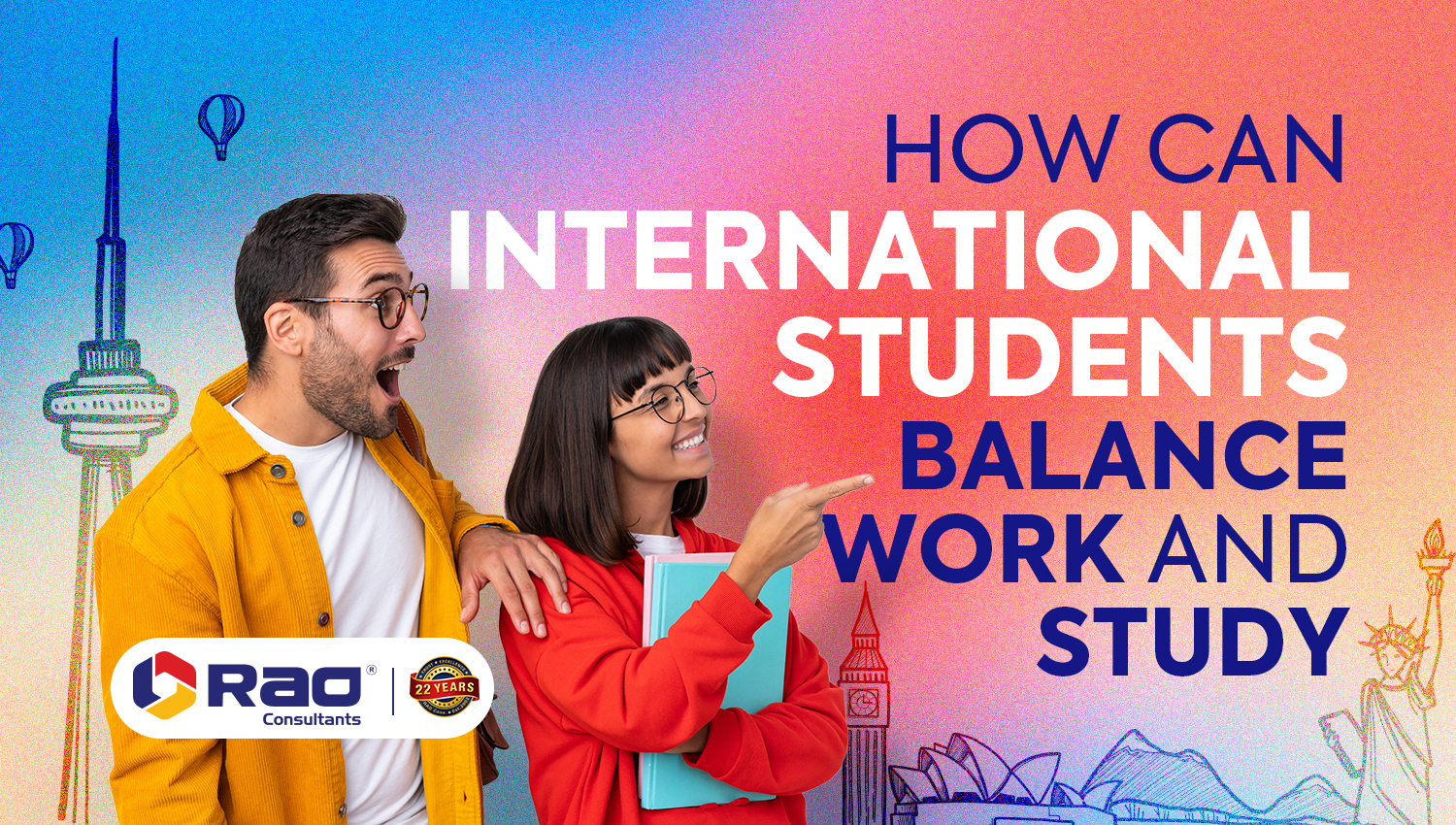
admin
June 24, 2022
Study in Canada After Graduation
![]()
The concept of foreign education has been gaining a lot of momentum from quite some time now. Students these days highly prefer to study in Canada after completing their Graduation. It is imperative to search about topped ranked universities when it comes to selecting the best course for yourself. After ticking the university selection box, you also need to take into consideration a bunch of various other parameters like the course duration, credibility of the course, the fees structure, about the faculty and the score requirement of different foreign education entrance exam such as IELTS, PTE, TOEFL.
Why is Canada one of the most popular and sought after destinations for studies after graduation?
Universities of Canada are well recognised worldwide considering the quality of their teaching standard and the research based post graduate programs they offer. Their educational curriculum gives paramount significance to practical projects which are industry-relevant including internship period to provide the students with hands on experience of the on field work. One cannot ignore the fact that study in Canada after graduation is comparatively less expensive and also offers more number of scholarships. Last but not the least, Canada has turned out to be a country having cosmopolitan culture with students migrating from every corner of the world. This makes it extremely adaptable in terms of food, language, attire and religion.
Things to remember while applying to study in Canada after graduation in India
Canada, over the past few decades has earned enormous amount of reputation and trust for its exceptional education system and a plethora of graduation, post-graduation and diploma courses it offers. Students from all across the globe aspire to study in Canada after graduation, especially Indians.
Key features of Canadian admission process:
- Canada’s Three Intakes –
- January
- May
- September
Among these, May witnesses the least, whereas September receives the highest student intake
Requirements to be met for Studying in Canada after graduation-
- They must have acquired 50 percent or more score in their degree exams
- A minimum band score of 6.0 in the IELTS test is mandatory to apply under SDS category
- Particularly for The Master of Business Administration (MBA) programs, student can apply with or without GMAT score. It is one off the most demanded courses after graduation that offers a wide range of career opportunities to the students.
Courses to Study in Canada after graduation:
It is very crucial what course you select along with the right kind of university as it is going to pave your path towards future. Mentioned below is a comprehensive list of courses to study in Canada after graduation depending upon your eligibility criteria and area of interest.
Master courses in Canada:
- Post-Graduation in business, management and finance
- Master’s in International Business
- Master’s in Artificial Intelligence
- Master’s in Data Analysis
- Master’s in Computer Science
- Master’s in Information Technology
- Master’s after MBBS
- Master’s in Robotics and Mechatronics
- Master’s in Pharmacy
- Master’s in Agriculture courses after graduation
- Master’s in Nursing courses after graduation
- Master’s in Computer Application
- Master’s in Dental Surgery
- Master’s in Canada after engineering
- Medical courses in Canada after graduation
Study in Canada after graduation in Arts:
These courses are specifically designed to cater students who carry keen interest in the liberal arts, social sciences and humanities. Here is a list of courses after BA is Canada:
- Master of Arts in Professional Communication
- Master of Arts in Media and Public Relations
- Master of Arts in Planning
- Master of Arts in Anthropology
- Master’s in Administrative Science
- Master of Arts in Public and Pastoral Leadership
- Master of Arts in Inter Cultural and International Communication.
- Master of Arts in Conflict Analysis and Management
Diploma Courses to study in Canada after graduation:
In Canada you can apply for a post-graduate diploma after completion of your undergraduate degree program. These courses mainly aim to offer people with a relatable undergraduate degree an opportunity to enhance their employment skills. These courses are a yearlong courses offered by many Canadian universities. Here is a list of diploma courses in Canada:
- Diploma in Tourism Management
- Diploma is Hospitality Management
- Diploma in Culinary Management
- Diploma in Business Administration
- Diploma in Media Design and Web Development
- Diploma in Video Game Design and Animation
- Diploma in Network Technician
- Diploma in Global Supply Chain Management and International Trade
- Diploma in Graphic Design Technology
- Diploma in Digital Marketing
- Diploma in 3D Modelling, Animation Art and Design
- Diploma in Quality Assurance and Regulatory Affairs – Food Pharma and Cosmetics.
- Diploma in Cyber Security Specialist
- Diploma in Hospitality and Tourism Management
- Diploma in Computer Systems Technician
- Diploma in Data Analytics
- Diploma in Graphic Design Technology
Study in Canada after graduation in Commerce:
Students who have studied mathematics along with commerce stream are eligible to pursue these courses.
Here’s a list of Master’s’ Courses in Commerce in Canada:
- Com in Finance
- Com in Marketing
- Com in Accounting
- Com in Taxation
- Com in Advertising
- Com in Mathematics
- Com in Economics – Microeconomics and Macroeconomics
- Com in Business Administration
- Com in HR Management
- Com in Cost Accounting
- Com in Journalism
Study in Canada after graduation in Science:
Generally, a Master of Science degree is awarded to students who finish their studies in courses such as Natural Sciences, Social Sciences, Engineering, Technology, Medicine and Health, Mathematics, Informatics etc. The ideal course duration for M.Sc. degree falls somewhere between 1-2 years, but some master’s programmes like Computer Science and Engineering take from 3-5 years whereas master courses in Medicine may take as long as 6 years to complete depending on your area of specialisation.
Here’s a list of Master’s’ courses in Science in Canada:
- Master’s in Computer science
- Master’s in Molecular science
- Master’s in Physical science
- Master’s in Health sciences
- Master’s in Civil Engineering
- Master’s in Public health
- Master’s in Environmental and life sciences
- Master’s in Applied human nutrition
- Master’s in Psychological science
- Master’s in Information Technology
- Master’s in Mathematical sciences
- Master’s in Clinical psychology
- Master’s in Electrical and Computer engineering
- Master’s in Informatics
- Master’s in Chemical engineering
- Master’s in Nursing
- Master’s in Computer science-Artificial Intelligence
- Master’s in Psychology
- Master’s in Forensic science
- Master’s in School psychology
Study in Canada after Graduation in Law:
Have you ever noticed that both Indian Law and Canadian Law are primarily based upon British Legal System? Did you just finish your LLB and wondering where to pursue LLM (Master’s in Law)? Well, then Canada is the perfect place for doing Master’s in Law because of several benefits. For one, Canada has top law schools in the world. Secondly, the job prospects in the country are promising. Finally, Canada has the best international student policies.
Here’s a list of Master’s courses in Law in Canada:
- Master of Law (LLM)
- Master of studies in Law
- Master of Law in Global sustainability and Environmental Law
- Master of Law in International Humanitarian and Security law
- Master of Law in Technology
Eligibility Criteria for Students to Study in Canada after Graduation:
There are certain requirements which students need to fulfil in order to be qualified to get selected to study in Canada after graduation.
- They must have scored at least 65 percent of marks in Humanities
- A minimum 70 to 80 percent marks in Class 12th in either science or commerce stream.
- Indian students also need to meet basic English language requirements like IELTS score of at least 6.5 Bands Overall.
List of Documents needed at the time of Application:
- Photocopies of 10th, 12th and Graduation mark sheets
- Two letter of Recommendation from your previous employer
- Two letter of recommendation from your previous professors
- A detailed Essay
- A well drafted Statement of Purpose (SOP)
- A very well-written Resume
- Photocopies of your IELTS/GMAT/GRE/TOEFL test scores
- Valid proof of Funds shown
- Medical certificates
- Any certificates awarded at a state or national level
What are the Job prospects of Studying in Canada after Graduation?
Upon finishing your Master’s degree from Canada, you are eligible to work there for the same amount of time as your Master’s course. In order to extend your work period, you need to apply for a particular type of programme called the Post-Graduation Work Permit Programme (PGWP) within a 90 day time frame right after the official completion of your course. Since Canada offers abundant work opportunities lately, international students must be able to find a suitable job quite conveniently. The salary structure is different with respect to the type of work you choose and the related field with Information and technology, computer science, scientific research, Oil, petroleum and renewable energy being the highest paid jobs. However, the average salary for an entry-level job in Canada falls somewhere between CAD $50,000 and CAD $60,000 per annum.
How much Funds do you require for Living Expenses in Canada?
The living expenses in Canada depend upon various factors like which city you choose to live in and the kind of lifestyle you wish to maintain. Generally you need approximately CAD $ 10,000 which INR 5 to 6 lacs per year to cover the living expenses. But if you prefer to stay in cities like Toronto and Vancouver, your living expenses are definitely going to soar. However, you have options of taking up part-time jobs to meet your living expense there.
International students who are full-time students with work permit have the liberty to work for 20 hours per week off-campus while pursuing their studies whereas they can work for full-time during their summer and winter breaks. It is mandatory for International students to have Health insurance in Canada. So students also need to arrange to pay for their health insurance especially when they are studying in Ontario, Nova Scotia, Manitoba, Quebec and Prince Edward Island. Nonetheless, they are covered under the health care plans in provinces like Alberta, British Columbia, Labrador, New Brunswick, Newfoundland and Saskatchewan.[/vc_column_text][/vc_column][/vc_row][vc_row][vc_column][vc_toggle title=”What is the scope of studying in Canada after graduation?”]Skilled professionals like engineers, doctors, Nurses, lawyers etc. are in high demand in Canada. So, your post-graduate degree along with the practical experience in the relevant field will bag you your dream job.[/vc_toggle][vc_toggle title=”What are the types of work permit for international students in Canada?”]International students studying in Canada after graduation for Master’s degree and want to work there have to apply for Openwork Permit. This allows you to work for employers under particular circumstances. Employer-specific work permit is issued based on the employer, the type of work, location of work and work duration.[/vc_toggle][vc_toggle title=”Which types of exam do you need to take for studying in Canada after graduation?”]If you are not a native speaker you need to take up either of the test; IELTS, TOEFL. Apart from this, for post graduate programs may you also need to take up GMAT.[/vc_toggle][/vc_column][/vc_row]
Share onYou May Also Like

How to Choose the Right Entrance Exam for Study Abroad ?
![]()
Studying abroad is a dream for many Indian students, but it often requires a critical step: passing the right entrance exams. Just like you need a ticket to board a flight, these exams are your entry pass into foreign universities. Whether it’s to prove your English language skills or to showcase your academic excellence, entrance […]
Read More
How Can International Students Balance Part-Time Work and Study?
![]()
Studying abroad is a dream come true for many students. when you’re juggling part-time work and study then it’s enriching, exciting, and at times, a little overwhelming. Sounds like walking a tightrope, doesn’t it? For many international students, working part-time isn’t just a choice; it’s a necessity. But how do you keep your grades up […]
Read More
Top Part-Time Jobs for International Students in Ireland
![]()
Are you planning to study in Ireland and wondering how to manage your expenses? You’re not alone. Thousands of international students ask the same question each year. The good news? Ireland offers plenty of part time job opportunities that can help ease your financial load—and even boost your resume. Think of it like riding a […]
Read More